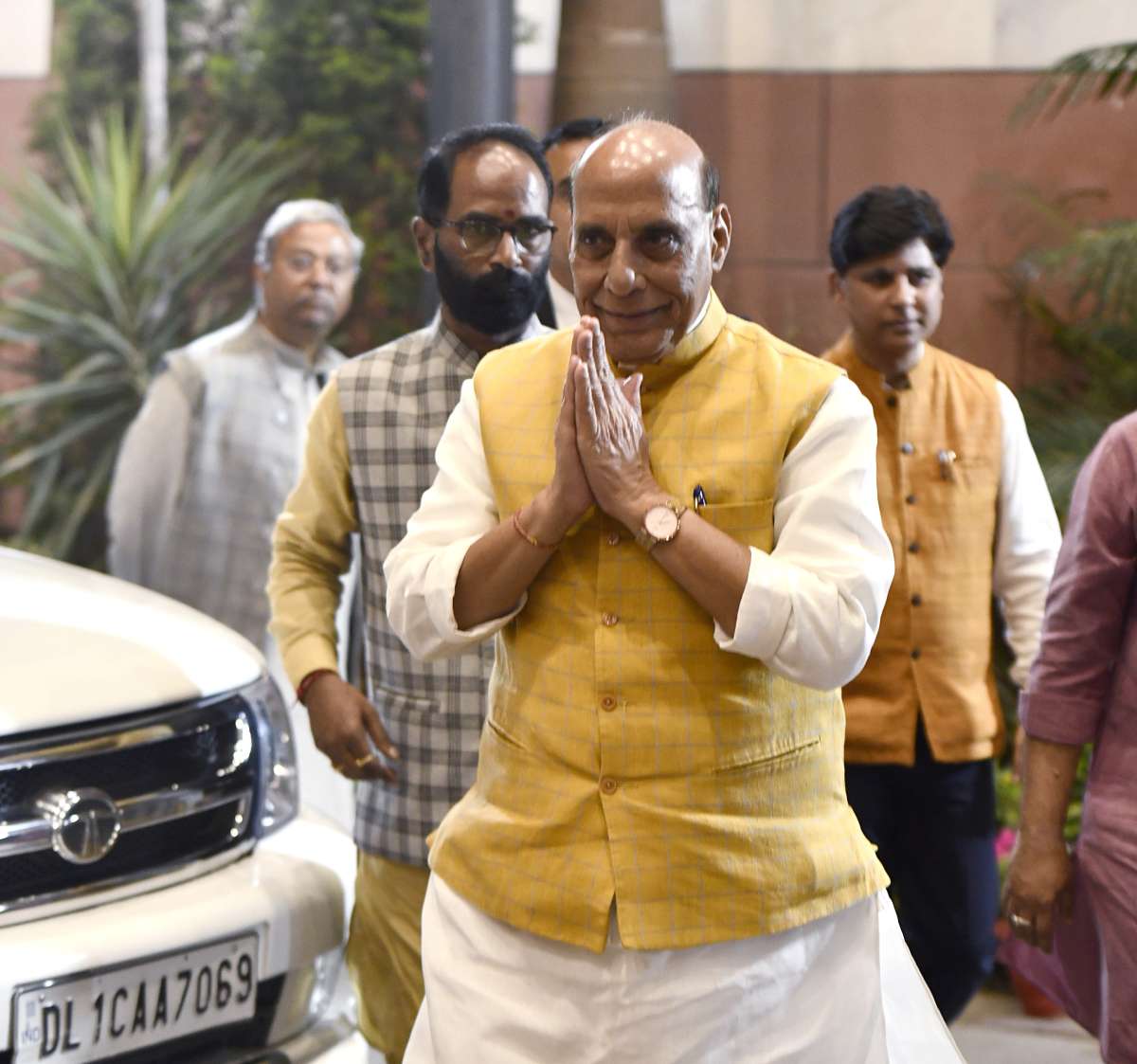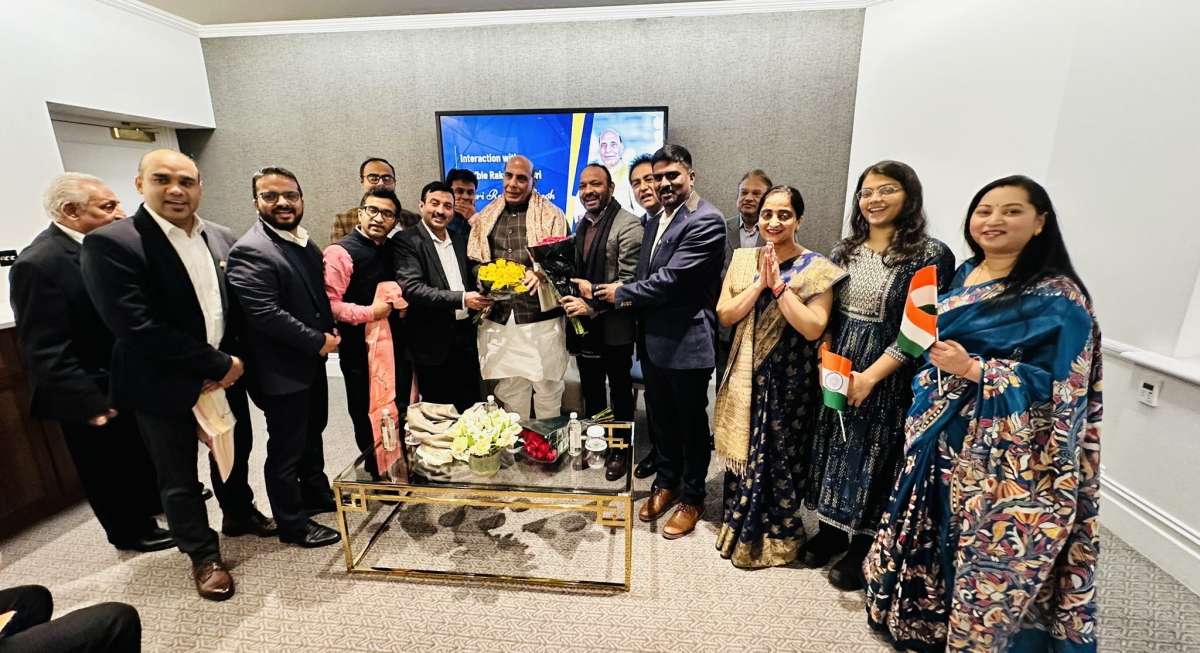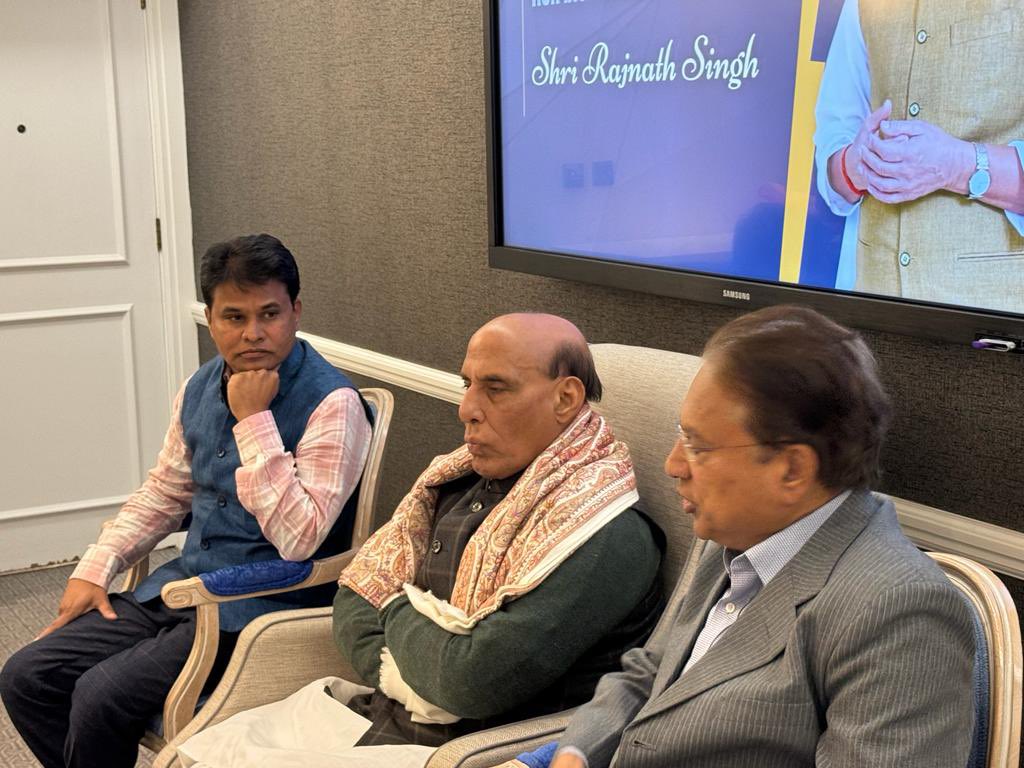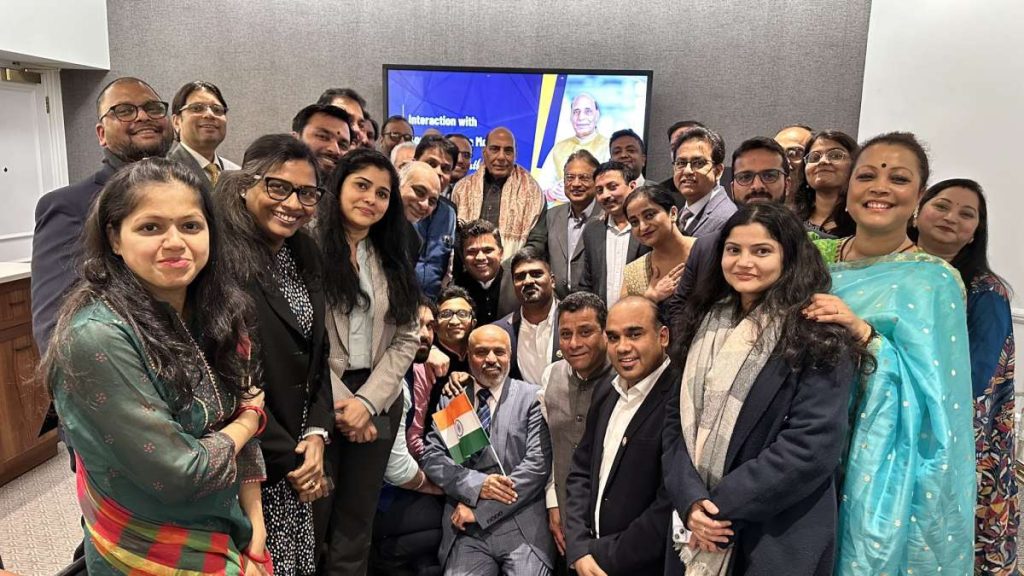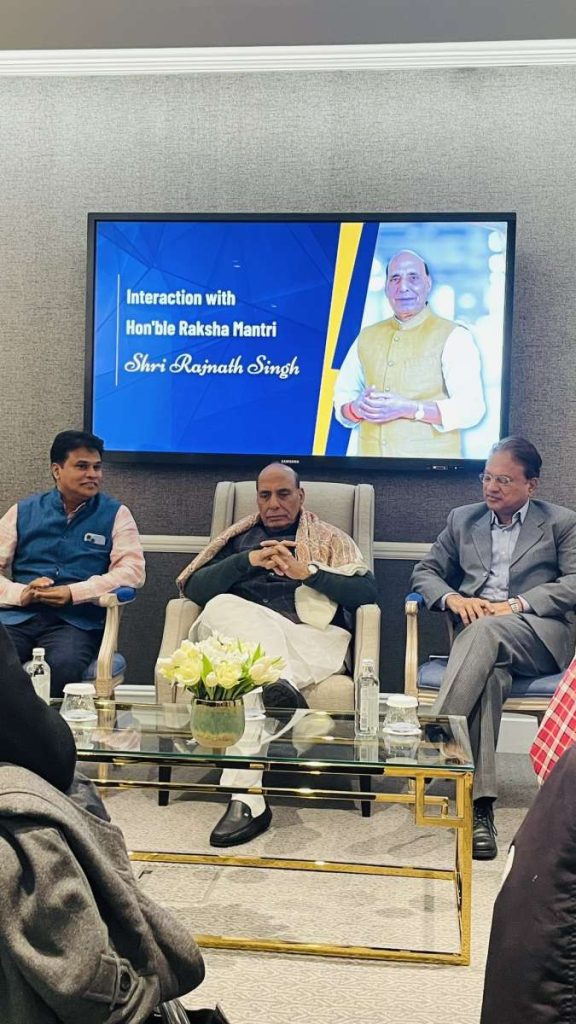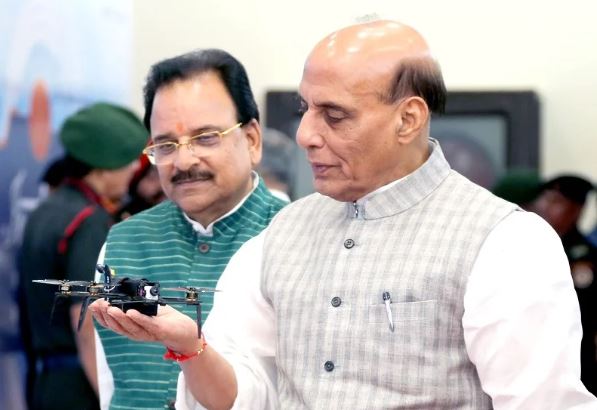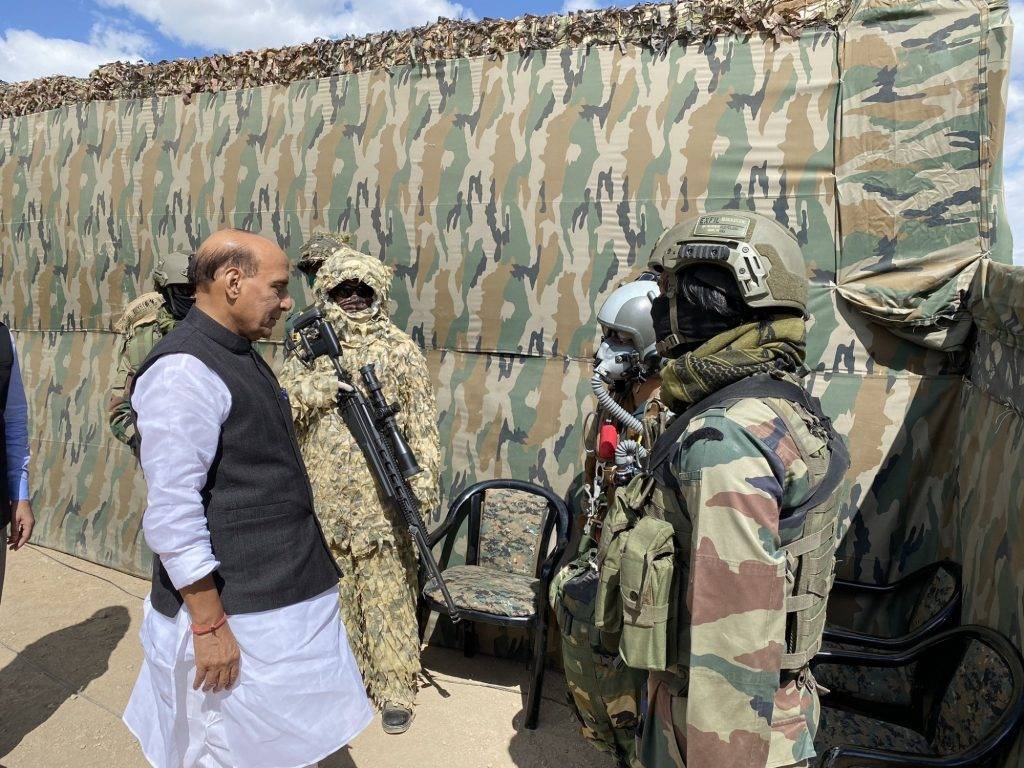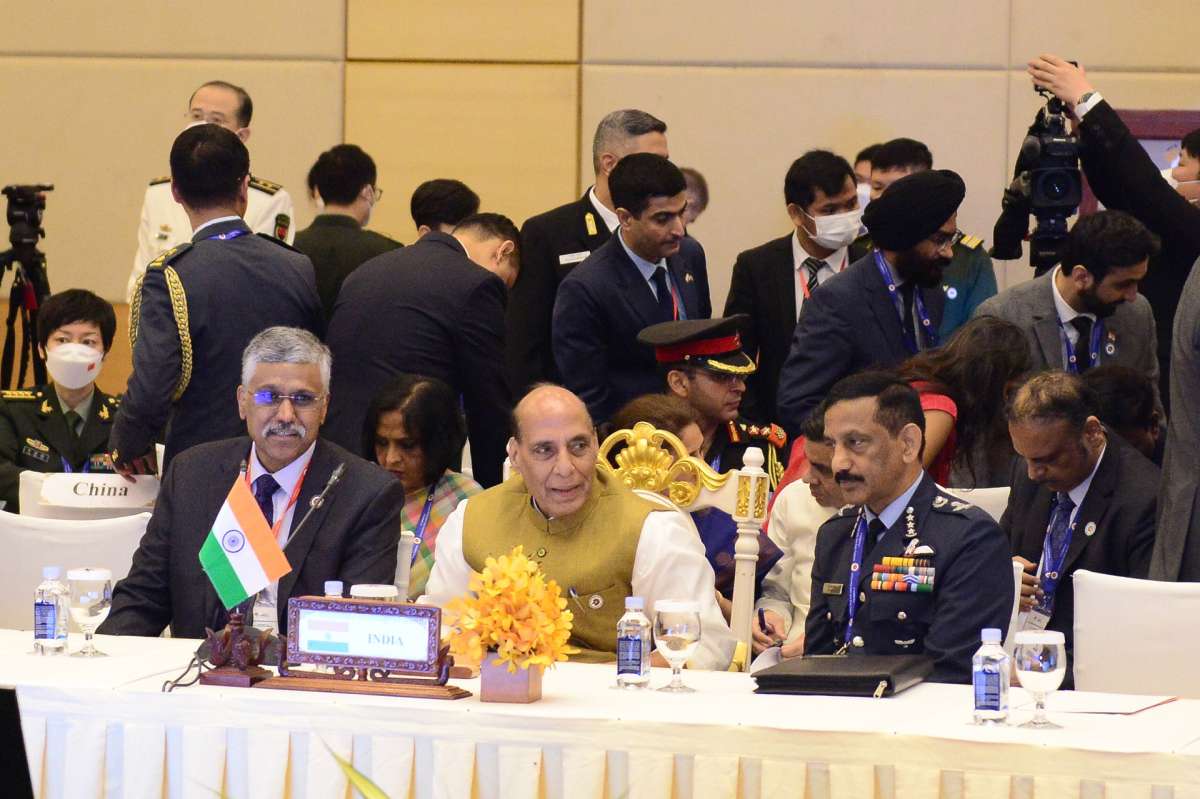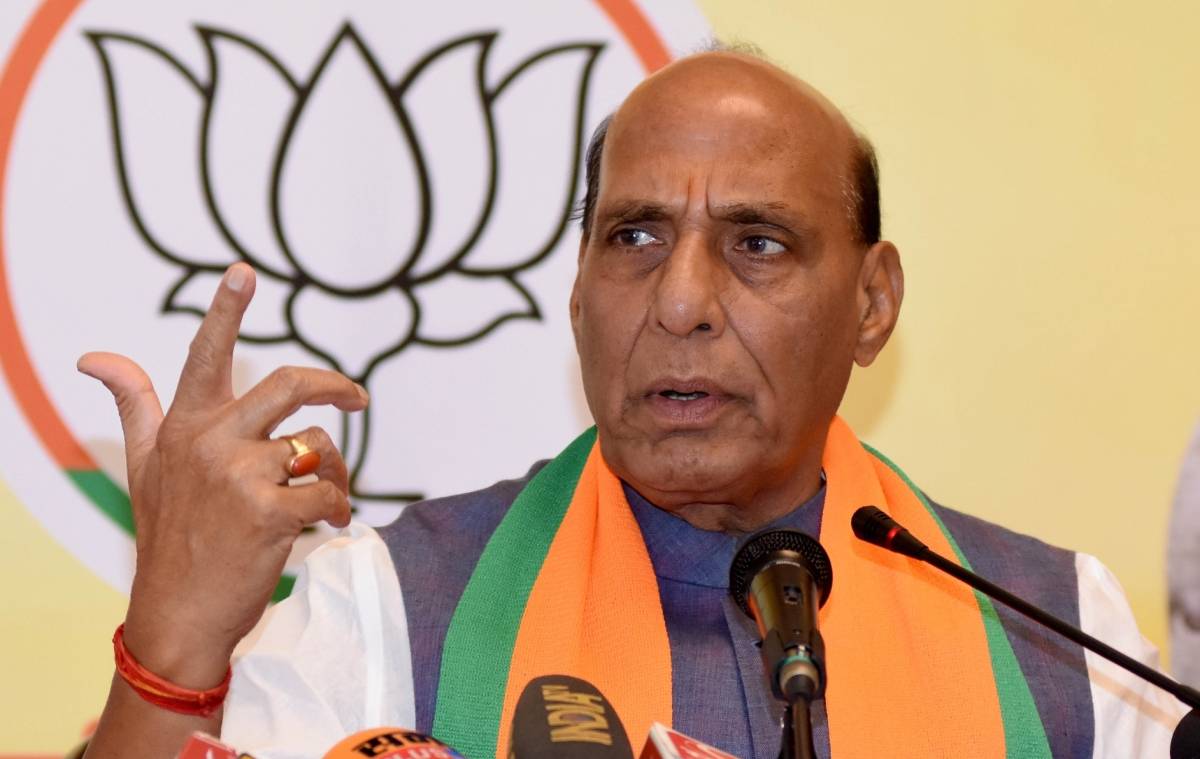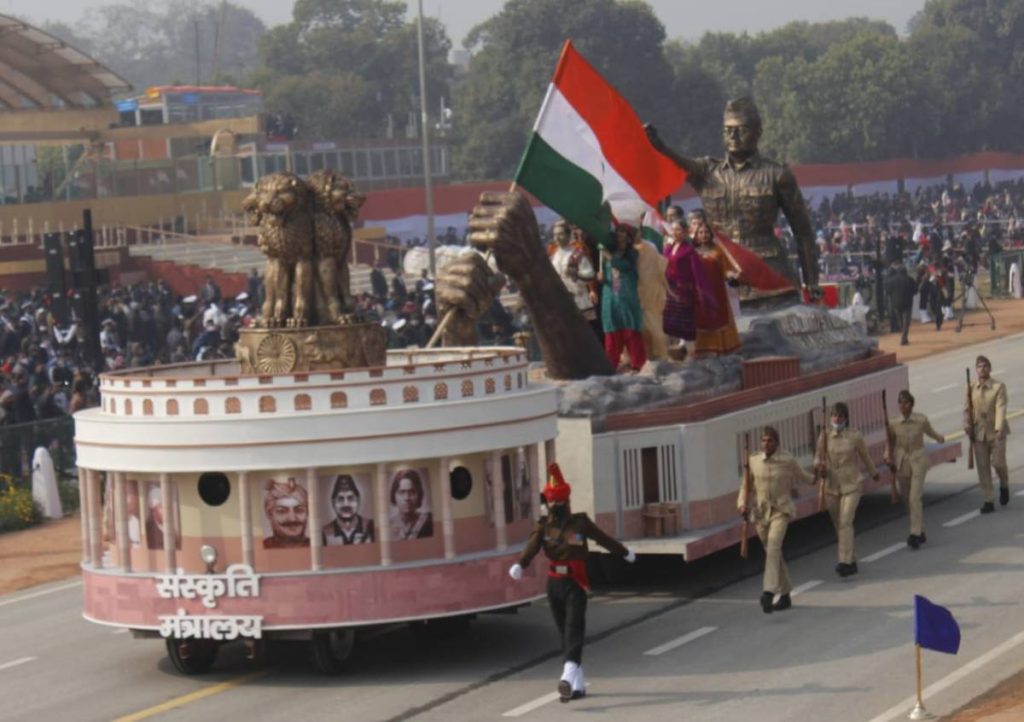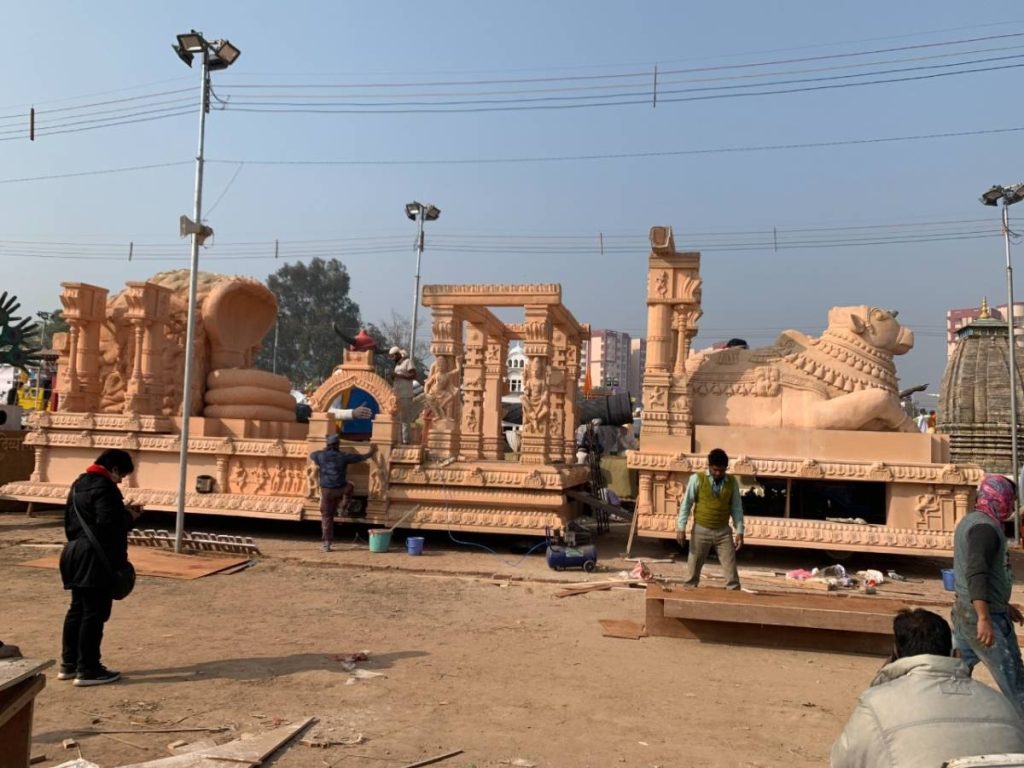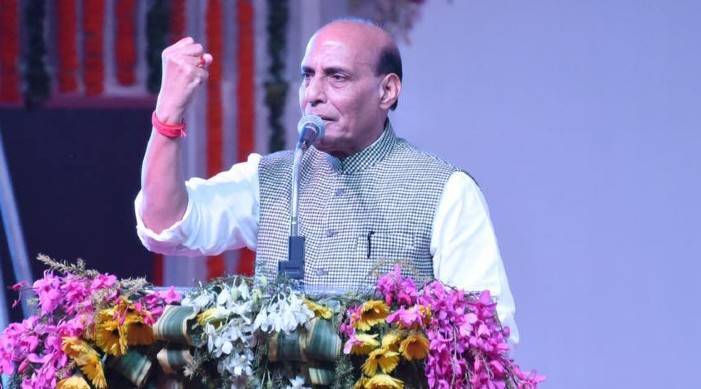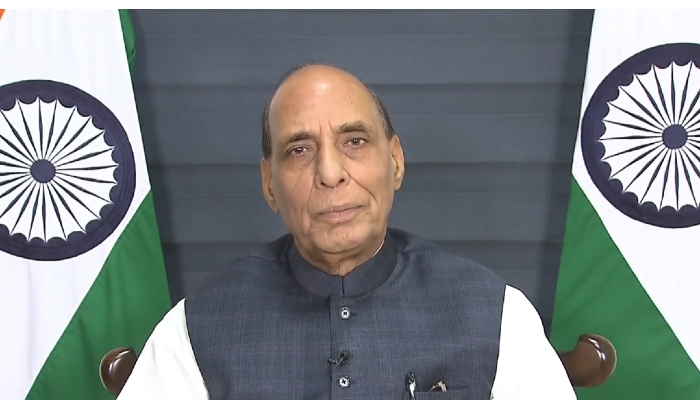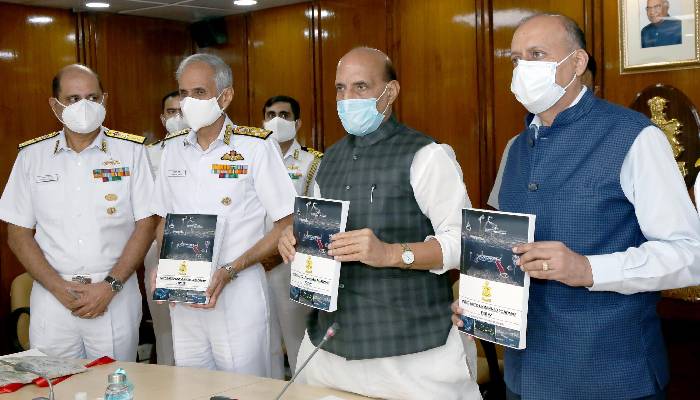Finance Minister Nirmala Sitharaman and Union Minister Piyush Goyal will be convenor and co-convenors, respectively….reports Asian Lite News
The Bharatiya Janata Party on Saturday announced the Election Manifesto Committee for the Lok Sabha elections 2024. BJP president JP Nadda announced the 27-member committee which will be headed by defence minister and former BJP chief Rajnath Singh.
Finance Minister Nirmala Sitharaman and Union Minister Piyush Goyal will be convenor and co-convenors, respectively.
Arjun Munda, Bhupender Yadav, Arjun Ram Meghwal, Kiren Rijiju, Ashwini Vaishnaw, Dharmendra Pradhan, and Bhupender Patel are included as members in the committee.
Assam CM Himanta Biswa Sarma, Chhattisgarh CM Vishnu Deo Sai and Madhya Pradesh CM Mohan Yadav are also included in the list.
Along with them, Shivraj Singh Chouhan, Vasundhara Raje, Smriti Irani, Jual Oram, Ravishankar Prasad, Sushil Modi, Keshav Prasad Maurya, Rajeev Chandrashekhar, Vinod Tawde, Radha Mohan Das Agarwal, Manjinder Singh Sirsa, OP Dhankar, Anil Antony and Tariq Mansoor are also there.
Meanwhile, Bharatiya Janata Party on Friday announced the candidates for the by-election to be held in the Gandey Assembly seat of Jharkhand and Bagidora Assembly seat in Rajasthan.
The party has fielded Dilip Kumar Verma from the Gandey Assembly, while Subhash Tamboliya has been given a ticket from the Bagidora Assembly in Rajasthan. The bypoll will be held at Bagidora Assemby in Rajasthan on April 26, while the Gandey Assembly will undergo a bypoll on May 20.
Bypolls on 26 Assembly seats will also be held along with the Lok Sabha polls. Meanwhile, Lok Sabha polls will be held in seven phases beginning April 19. Nearly 96.8 crore people are eligible to cast their votes in the upcoming polls at over 12 lakh polling stations.
The election for 543 Lok Sabha seats will be held in seven phases starting April 19. The counting of votes will take place on June 4. In the 2014 Lok Sabha election, the Bharatiya Janta Party (BJP) won 282 seats, while the Indian National Congress (INC) managed to get only 44 seats.
In the 2019 Lok Sabha election, the Bharatiya Janta Party (BJP) won 303 seats, while the Indian National Congress (INC) managed to get only 52 seats. (ANI)
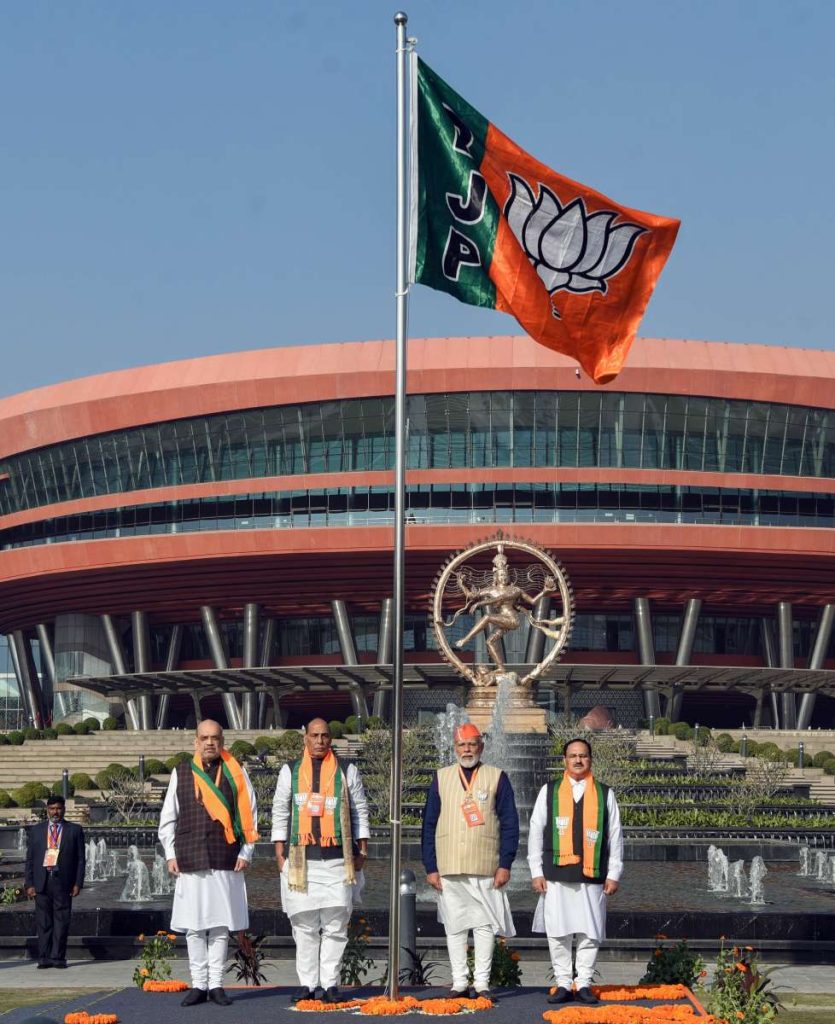
BJP releases 8th list of 11 candidates
The BJP Saturday named 11 more Lok Sabha candidates, four of whom had jumped ship from other parties — including former BJD leader Bhartruhari Mahtab and former Congress leader Preneet Kaur.
The party’s eighth list of nominees comprised two candidates from West Bengal, three from Odisha and six from Punjab, taking its total number of announced candidates to 411 so far. All four defecting leaders have been fielded from the seats they represent in the outgoing Lok Sabha.
A notable inclusion in the list was that of former IPS officer Debashish Dhar from West Bengal’s Birbhum seat, where he will contest against three-time TMC MP Satabdi Roy. Dhar was suspended as Cooch Behar SP after the 2021 West Bengal Assembly elections during which four people were killed in Sitalkuchi area in alleged firing by central forces. On March 20, the IPS officer resigned from service citing “personal reasons”. The other candidate from Bengal is Pranat Tudu, a doctor who will be pitted against TMC’s Kalipada Soren in Jhargram.
The BJP has so far named candidates to 40 out of the 42 seats in West Bengal. The Diamond Harbour seat, which Chief Minister Mamata Banerjee’s nephew Abhishek Banerjee represents, is one of the two seats it is yet to name candidates for.
In Odisha, Mahtab will contest from the prestigious Cuttack constituency, which he has been representing since 1998 as part of the BJD. The son of Odisha’s first chief minister Harekrushna Mahtab, he recently resigned from the regional party expressing displeasure over its functioning. Mahtab will take on BJD’s Santrupt Misra, former HR head of Aditya Birla Group.
In the communally-sensitive Kandhamal, the BJP fielded Sukanta Kumar Panigrahi, who has a strong RSS background. The BJD has been winning the seat since 2009, when it broke off ties with the BJP. Panigrahi will face BJD’s Achyuta Samanta, who won the seat in 2019. The BJP has named Rabindra Narayan Behera, a technocrat, from Jajpur, a seat reserved for Scheduled Caste candidates. He will contest against the current MP, BJD’s Sarmishta Sethi. With these three names, BJP has announced candidates for all 21 seats in Odisha.
In Punjab, the BJP’s inaugural list of six candidates includes three turncoats. Among them is Preneet, who is former Punjab CM Amarinder Singh’s wife. Punjab has 13 Lok Sabha seats. While Ravneet Singh Bittu, who defected from Congress to BJP on March 26, will contest from Ludhiana where he is the current MP, Sushil Kumar Rinku, a former AAP leader who joined BJP on March 27, has been fielded from Jalandhar. Rinku won the Lok Sabha bypolls from the same seat last year.
Preneet, a former Congress MP from Patiala who switched to the BJP in March, has been fielded from Patiala again.
Hans Raj Hans, a Sufi singer-turned-politician, and retired diplomat Taranjeet Singh Sandhu will contest from Faridkot and Amritsar, respectively. Hans Raj Hans is pitted against Karamjit Anmol, a singer and actor close to Punjab CM Bhagwant Mann. The party also decided to field Dinesh Singh ‘Babbu’, a seasoned MLA, from Gurdaspur in place of actor Sunny Deol.
ALSO READ: Indian economy in distress, BJP unaware: Chidambaram

